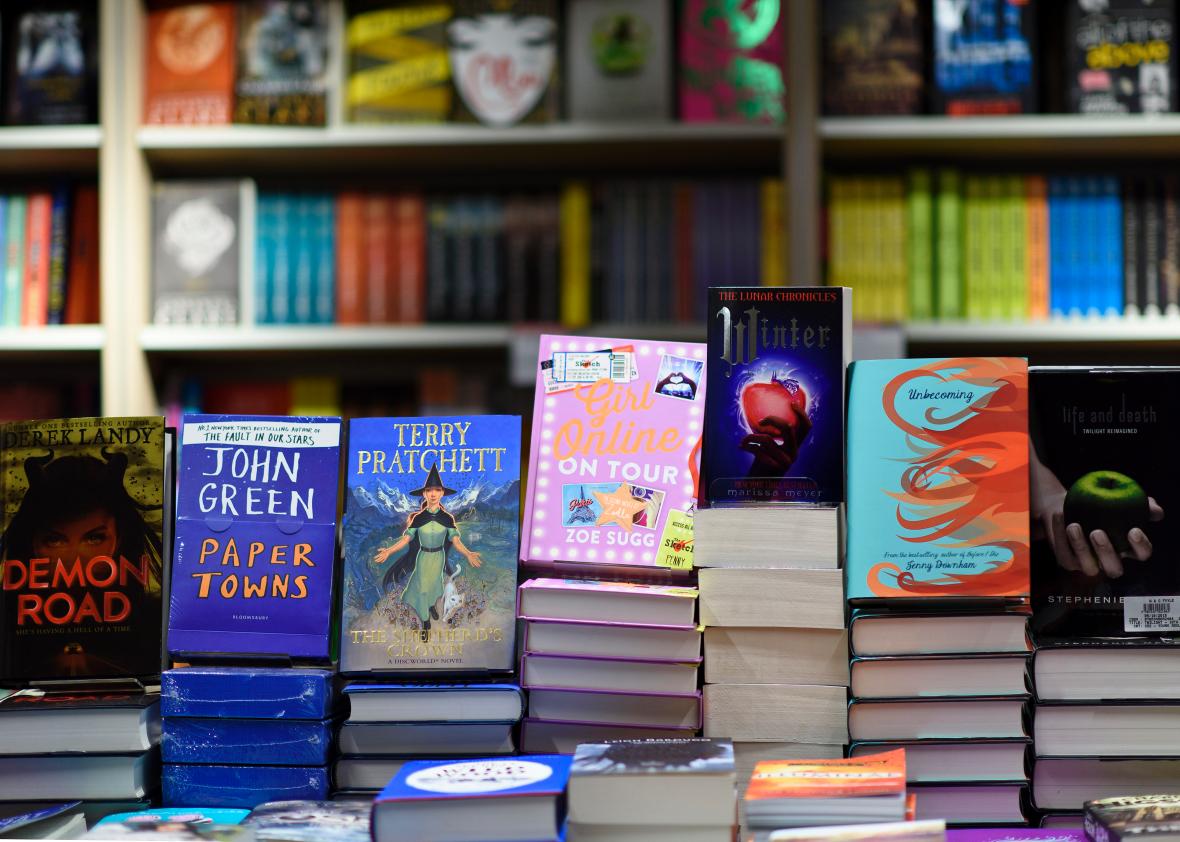People Are Ordering Books on Twitter to Save a Piers Morgan–Trolling Indie Bookstore

Photo by Ben Pruchnie/Getty Images
In February, in a small shop with bright green walls in North London, a local bookstore proprietor started tweeting the full text of the first Harry Potter book at Piers Morgan.
The shopkeeper, Simon Key, had been inspired by a Twitter feud between J.K. Rowling and the British T.V. personality/internet blowhard. Morgan, responding to Rowling’s expressing delight at him being told to “fuck off” on Real Time with Bill Maher, wrote, “This is why I’ve never read a single word of Harry Potter.” The next day, the Big Green Bookshop’s co-owner started tweeting. He tweeted hundreds of times and was blocked, others carried on his work and his hashtag, and the book store became momentarily Twitter-famous.
The Bookseller, a British magazine that reports on the publishing industry, quoted Key as saying the store received a sizable boost in sales. But Twitter fame can only sustain a business for so long, and on Sunday Key sent out a plea for help:
I'm off to bed.
— Big Green Bookshop (@Biggreenbooks) April 23, 2017
From 9am tomorrow you really need to start buying some books off of us.
We're seriously skint.
6 days to pay bills.
x
In a very modern version of the by-now-familiar save-your-local-bookstore story, orders started pouring in immediately—directly on Twitter.
@Biggreenbooks Hello lovely shop. Please could I order a copy of Winged Histories by Sofia Samatar?
— Ali B ❄️ (@MsTick68) April 24, 2017
Commenters formed a sort of community of readers weighing in on each other’s requests for help, and others paid for book donations.
@Biggreenbooks ...can I pay £10 or whatever's an average amount for a kids book, and you give one to a local school or the next kid through the door?!
— Hannah Dunnell (@the_dunners) April 24, 2017
Ironically (or fittingly?), the campaign to save the Big Green Bookshop turned the shop, at least temporarily, into an international e-commerce business, a scaled-down version of the services often blamed for edging out indie bookstores. While many Londoners did turn to Twitter to find out if a book they wanted was in stock before swinging by, it seemed most people asked for shipments by mail.
This moment of spontaneous viral crowdfunding is something of an anomaly on Twitter. The network had, in 2014, tried making itself a platform for e-commerce by developing a “buy” button for brands. But Twitter users (and users of other social media platforms that also had pushed e-commerce) never really seemed to want to do their shopping on Twitter, and the button was scrapped this January. Perhaps all the idea needed to gain currency was a desperate, sassy little bookshop. After all, people love independent bookstores, regardless of whether they’re the best option for buyers or the local economy.
In fact, this wasn’t the first time the book store benefited from Twitter users’ generosity. In April 2016, Key wrote on Twitter after someone stole £600 from the shop. An editor of The Guardian saw his tweet and set up a JustGiving donation page to try to recoup the store’s losses. In a post on The Guardian’s website, Key wrote that “the target of £600 was smashed in less than two hours.”
This is incredible. We're still busily working through emails (134 unread) and tweets (off the scale). Thank you so much. x
— Big Green Bookshop (@Biggreenbooks) April 24, 2017
It’s hard to tell if local museums, coffee shops, and theaters could benefit from the same social media pleas—and if we really want local businesses to have to resort to emotional appeals, like an ill person counting on GoFundMe after plummeting through the social safety net, in lieu of policies that help them stay in competition with giants like Amazon. But it couldn’t hurt for people to spam Piers Morgan with more book quotes, just in case.
